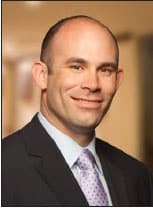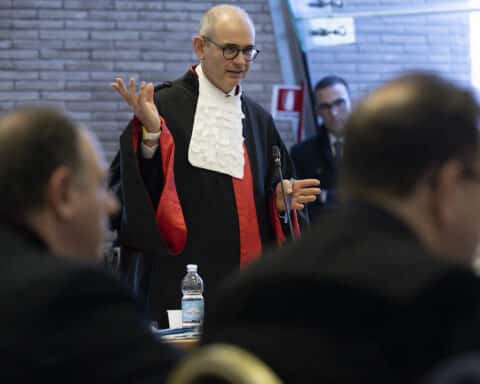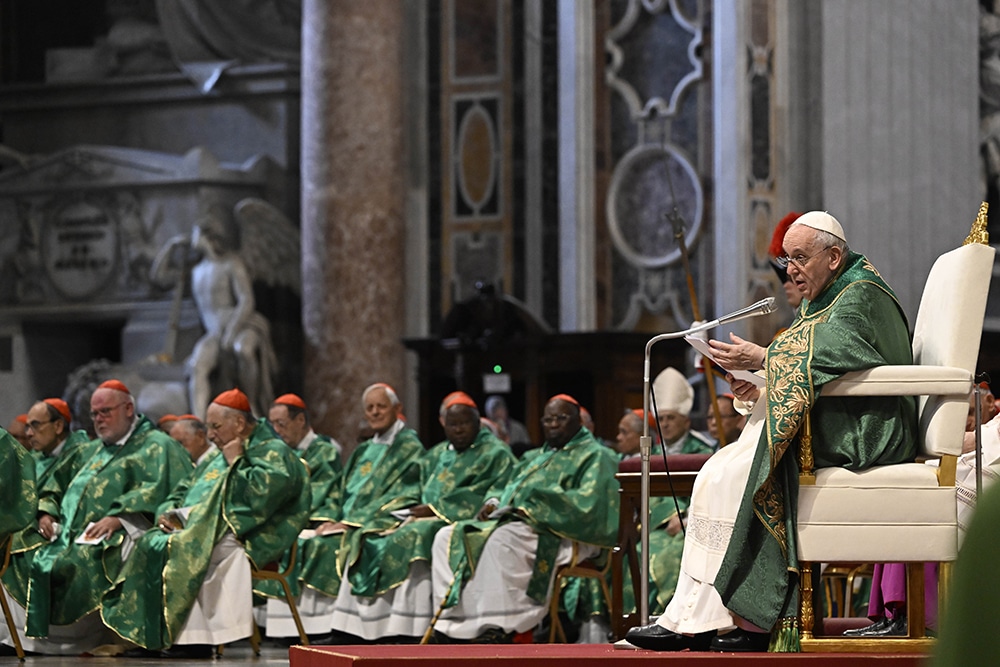The mission of the Napa Legal Institute isn’t flashy, according to its president and general counsel John Peiffer. It was formed to provide resources to Catholic apostolates, mostly led by laypeople, to help them with their legal organization. That means offering sample documents, informing people about what they need to do and providing educational events for people who work in apostolates and for lawyers who advise them. The educational institute recently was granted nonprofit status.
Peiffer explained how the organization got started and its mission to Our Sunday Visitor in an interview.
Our Sunday Visitor: What is the Napa Legal Institute? Who does it help?

John Peiffer: There are a lot of organizations that have been established in the United States that align themselves with the Catholic faith but are not necessarily Catholic in the strict canonical sense. Maybe they’re recognized within their diocese for purposes of being in the group tax-exemption through the U.S. Catholic Conference, but maybe not. They may just have their own tax-exempt status, but they have a stated purpose that is aligned with the Faith, or they may have clergy or religious involved in their leadership, etc.
The point of our organization, at least in its initial phase, is to provide resources for those organizations that will enhance the legal representation that they are receiving from whatever lawyer or law firm they may be working with. The goal of this is not to generate business for the Napa Legal Institute or for any particular law firm, but to provide resources such as sample provisions in articles and bylaws that are designed to enhance the explicit commitment of the organization to its Catholic principles.
We’re in a situation where, increasingly, organizations may be encountering difficulties with respect to hiring policies and things like that, so we’re trying to help them.
You already have organizations like the Becket Fund or Alliance Defending Freedom or the St. Thomas More Law Center who are out there actually representing organizations to advocate for their religious freedom. We’re kind of a step before that.
| NAPA Legal League |
|---|
|
The Napa Legal Institute was formed to provide resources, not legal representation. But it could soon help Catholic apostolates find lawyers who are able to help. It’s in the midst of creating the Napa Legal League, an association of allied attorneys who have expertise in advising religious nonprofit organizations. The league’s inaugural event took place on March 19, the feast of St. Joseph, in Washington, D.C. “We had an initial group of about 50 or so folks, a mix of lawyers and others who are involved in policy work and things like that,” said John Peiffer, Napa Legal Institute’s president and general counsel. The group will hold its official launch event May 2 at The Catholic University of America. |
OSV: What resources do you offer?
Peiffer: Ultimately we will roll out a library of sample documents. The organizations will work with whoever their counsel is to adapt those to their needs. There will be things like articles, bylaws, operations manuals, employee handbooks, things like that.
In addition to that library of documents, there will also be seminars that are geared toward individuals who are working in apostolates or interested in founding apostolates, kind of a soup-to-nuts [approach]; what does it take from a civil perspective to get an apostolate off the ground for the evangelistic entrepreneurs who might be out there?
Then there also will be seminars and webinars for lawyers who may have interest in assisting these kinds of organizations to provide resources to them to help them be more aware of the issues that might be more specific to religious organizations, so they don’t inadvertently concede arguments down the line that they don’t have to concede.
OSV: What kinds of issues would you advise lawyers to look out for?
Peiffer: [They should] make sure that the organization is carefully taking into account whatever its obligations are as a tax-exempt organization for purposes of federal and state tax law, and also as a nonprofit corporation, incorporated in a particular state.
Examples would be things such as conflict-of-interest policies. If you have individuals who are on the board who are also employed by the apostolate, [it’s important] to make sure those folks aren’t involved in making compensation decisions about themselves. I’ve observed these kinds of situations in the course of my practice in smaller organizations, not because they are actively choosing not to comply with the law, but because they get hyperfocused on their mission, which is great, but by that sort of laser focus on the mission and what their goal is, they forget there is this body of compliance issues that they also need to address.
We want to get the word out to whoever these lawyers are who are willing to assist these organizations, whether they are doing it pro bono or what is called “low bono,” on a discount basis, whatever those situations are, we’d like to equip those lawyers so that we can do that work better.
OSV: You’re based in California. Will you offer resources for the entire United States?
Peiffer: The goal is ultimately, God-willing, to have a library of documents that will take into account all 50 states and the District of Columbia, and down the line Puerto Rico and American Samoa and these other places as well, because their laws are also specific to their location.
Corporate law, in general, is state specific. On the employment law side, there are certain laws that are specific to federal law — certain discrimination laws and things like that — then there are also state-specific employment discrimination issues that have to be taken into account.
OSV: How did you get involved in this area of law?
Peiffer: When I was a law student at Notre Dame, I knew that I wanted to be a corporate and transactional lawyer, meaning I don’t go to court, but I had the misimpression that all the action in religious liberty is in litigation and on the appellate side. Since I knew I didn’t want to do that professionally, I thought, well, gosh, I guess there’s really nothing for me to do except celebrate their victories when they have them and pray for their work. Once I got into practice, I realized how far off the mark I really was.
OSV: How are you publicizing the launch of the institute?
Peiffer: We’ve really only publicly launched within the last month or so. We are still in the process of building out the website. We have been trying to get the word out through Catholic media so that organizations are aware that we exist. We have friends who are involved in larger apostolates who sort of end up being the proverbial big brother or big sister to some of these startup apostolates, so we’re trying to get the word out to those folks as well.
Last November, even before our public launch, I made a presentation at EWTN’s radio affiliate conference on tuning up bylaws. I kind of went through, “Hey, how long has it been since you even taken your bylaws out of the drawer? My operating assumption is you went through the initial formation, you got your documents, you put them in a drawer, you closed the drawer and you haven’t opened it up since.”
We’ll do something similar via the web, and we’ll be sure to broadcast it through a variety of Catholic sources. We’re also going to do a webinar on employment issues for religious employers, because that’s an area that often raises questions, and we’ll be doing one for startup apostolates. The idea is to provide a road map, help raise issues so they’re better equipped to actually speak to a lawyer, so that they know the right questions to ask.
OSV: How is the institute being funded and financially supported?
Peiffer: We’ve been blessed with some initial funding from the Napa Institute Foundation, of which Tim Busch (chairman of the Napa Legal Institute’s board) is the chairman. We are actively in discussions with others who understand what it is that we’re trying to accomplish to see if they can make some initial seed gifts.
What we’re proposing to do is not as immediately compelling as what the pro bono law firms who are handling the religious freedom cases are doing. They can present what they are doing when they need financial resources to bring the case through the trial process or the appellate process.
Our case is a little different because we’re saying, “Provide the support to us so we can help people have a lower probability of those situations arising. As a result, we’ve got a little bit of a tougher row to hoe, frankly, in terms of identifying folks who understand the vision of this apostolate and are willing to support it.
Some of the resources will have a modest cost, but it’s not going to be money-making endeavor. It’s really geared at covering the cost.
Michelle Martin writes from Illinois.





